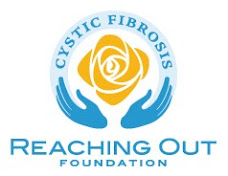
Lindy Wolfenden, MD
Director, Adult CF Program
Division of Pulmonary, Allergy and Critical Care Medicine
Emory Healthcare, The Emory Clinic
Phone: 404-778-3261
There's a new face of cystic fibrosis, and it is significantly older than you might expect. That's the message of the Cystic Fibrosis Adult Program at Emory University, the only program in Atlanta providing care specific to the needs of adults living with Cystic Fibrosis (CF).
Cystic Fibrosis, a genetic disease affecting 30,000 children and adults in the United States, impacts pulmonary function, digestion and reproduction. Symptoms include mucus in the lungs, lung infections, gastrointestinal problems and impaired breathing. Defective CF genes, carried by one in 30 Americans, have been pinpointed as the root cause of the disease, and the Cystic Fibrosis Foundation estimates that up to 10 million Americans are unknowing carriers.
Emory's Cystic Fibrosis Adult Program began in 2002 in response to the unique needs of adult CF patients, and complies with a national mandate from the Cystic Fibrosis Foundation that adults with CF be treated at adult centers. As a distinct unit in Emory's Cystic Fibrosis Center, Emory's program provides care to the increasing numbers of adult patients with CF. Lindy Wolfenden, MD, assistant professor of medicine in the Division of Pulmonary, Allergy and Critical Care in Emory University School of Medicine, notes that the median age of cystic fibrosis survival has risen from 14 in 1969 to age 35 in 2004. Now, almost 40 percent of cystic fibrosis patients are 18 or older, according to the Cystic Fibrosis Foundation, and doctors, including Dr. Wolfenden, expect the median age to rise even higher through increased research capabilities.
"As we learn more about the disease, more adults are being diagnosed as adults," Dr. Wolfenden says. "An adult who is diagnosed later in life is different than an adult diagnosed as a child in terms of their disease and their medical needs." Responding to those unique needs, the adult program advises patients not just on preserving lung function, but on smoking cessation, lung transplants, fertility, gastrointestinal complications and the diabetes and osteoporosis that often result in adults with the disease.
The comprehensive program pulls together Emory pulmonologists, gastroenterologists, nutritionists, respiratory therapists, nurses and social workers who have been specially trained to support adult patients living with CF. Emory's program, which includes a 10-bed inpatient facility and access to Emory University Hospital, now serves more than 140 adult patients from throughout the Southeast, with another 100 expected to transition fully into the program within the next two years.
The program is also dedicated to aiding Emory's mission as a research institution, says Dr. Wolfenden, "We want to further the mission of patient care and research, because it's through research that we have achieved this tremendous increase in median survival." Through funding from the Cystic Fibrosis Foundation, the National Institutes of Health, and pharmaceutical companies, the adult program is contributing to a number of different studies designed to treat CF symptoms, identify exacerbating factors of the disease and improve patient quality of life.
That process results from the urgency of researchers to lengthen life spans of CF patients. "When you're in the lab, you only change one thing at a time," notes Arlene Stecenko, MD, associate professor of pediatrics and medicine at Emory School of Medicine and the Cystic Fibrosis Center's director and director of research. "When you're trying to add five or ten years of life to an individual, you can't just do one thing at a time." Instead, Dr. Stecenko says, by testing multiple hypotheses at the same time she hopes her team can make as large a difference as possible in the lives of patients.




No comments:
Post a Comment